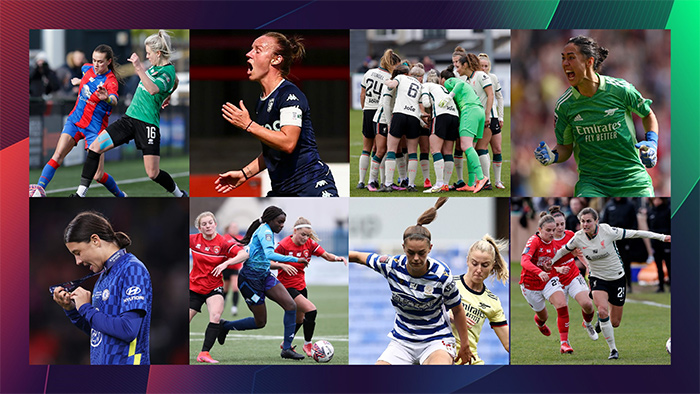What Women’s Football Needs To Do To Catch Up With Men’s And How The Role Of The Grounds Staff Is Key

With ‘no pitch no play’ one of the biggest barriers to levelling the playing field between women and men’s football, the success of the women’s game depends largely on the involvement of the grounds industry.
Ahead of speaking at SALTEX, the leading turf management show being held on Birmingham NEC from 2nd-3rd November, on increasing pitch capacity for the women’s game, Hannah Buckley, senior facilities and project manager for the women’s professional game at The FA, shares why the importance of the pitch and ensuring the groundswell of forward movement for the women's and girls' sport is not lost because of poor playing conditions.
“When any new sport or technology comes along, some people will be reluctant to embrace it, others will do so wholeheartedly. We all saw this with those who hosted women’s matches and practise for the Euros and those who didn’t.
“It’s important to remember the men’s game is over 150 years old, women’s is 50 and the young girls’ pro game is only 11 years old. At the start of our journey, all the infrastructure was built around 150 years of the men’s game.
“What’s important going forward is to remove the unknown entities when it comes to additional female users of any pitch. Everything is the same with regards to the pitch and its set up, it’s only the players who are different. Accommodating women’s sport causes far less damage than the men’s: the players weigh less, are smaller and therefore it is important to acknowledge different impacts against different users. Understanding differences provides opportunities for example professional training environments don’t need as much space in a natural pitch training environment – and that reduces the initial budget outlay and ongoing maintenance costs.
“Several women’s professional clubs have secured investment from the Premier League in the last three and a half years to improve pitch quality delivering new stitched and carpet hybrid products.”
She continues: “Women’s football is here to stay and we’ve got to focus on the pitches we’ve got. England has its infrastructure challenges. We’re an island with limited land availability, with predominantly urban stadiums and training grounds. We are not going to start by building new pitches, so we need to understand the playing surface and the game and work with what we’ve got and make them work for the future of the sport. And all sports groundspeople have a role to play in this. The process starts in education settings, local authorities and clubs, and in.
“My talk at SALTEX in fact considers this very subject and looks at the impact of Leigh Sports Village in Wigan. This example shows the impact a focus on grass roots can have at its finest. The venue had the biggest investment in public sports, recreational and educational facilities in Wigan borough for many years and has transformed Leigh into one of the finest hubs of activity in the North West. Its multi-surfaces serve the whole community providing a range of activities for local people as well as hosting international sporting events. It attracts the next generation of sporting stars in the community but is also home to professional rugby league team Leigh Centurions and Manchester United’s Women’s, U23s and U19s teams. It’s been a host stadium for the Rugby League World Cup 2022 and UEFA Women’s Euro 2022. The plethora of sports they host is down to the quality of surfaces and I’ll look at the how and why they’re able to do that in my Learning LIVE seminar at SALTEX.
“It’s something we can all work together on too. And by that I don’t just mean by looking at the way other sports are incorporating this requirement into their plans going forward or even other countries, but how grounds teams need more diversity – opportunities exist for women in helping prepare the surfaces for the women’s sport, we need diversity to be reflected in that sector, there’s a whole career pathway that could be incredibly rewarding for women.
“What really puts it into perspective is the moment when the Lionness’ won the Euros it was years in the making for those working in the womens’ game – it was the moment we’d all been waiting for, and it came on home turf. That feeling was indescribable and something we want more and more people in the industry to be a part of, experience and celebrate. We now have the world’s best sporting women’s league and everything to play for in terms of continuing the momentum. We need others to join in with those who supported us then, to support us in the next chapter as we work towards the next international event.”
Hannah joins Ted Mitchell of the Rugby Football Union, Iain James from the England and Wales Cricket Board and Ashleigh Seddon form the Rugby Football League at SALTEX on Thursday in theatre 1 at 1.45pm as they look at how groundspeople can increase pitch capacity for the women’s game.
Register for a free ticket at saltex.org.uk / register here.











































